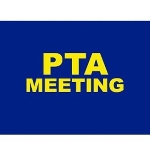W/R: Concerns mount over alleged illegal mining and misrepresentation at Bogoso-Prestea mine
 Health Goldfields logo
Health Goldfields logo
Serious concerns have emerged over the operations of Heath Goldfields Limited at the Bogoso/Prestea Mine in the Western Region, with allegations of illegal mining, regulatory breaches, and misleading public claims about investments and progress on the site.
According to reports, Heath Goldfields has begun re-mining old tailings dam materials and hauling ore from the Bondaye Shaft area despite not possessing the necessary Environmental Protection Agency (EPA) Permit and Operating Permit required under Ghana’s Minerals and Mining Act, 2006 (Act 703).
Section 18 of the Act, read alongside the Environmental Assessment Regulations (L.I. 1652 of 1999), stipulates that no mining activity may commence without the requisite environmental and operational approvals.
Additionally, Regulation 2 of L.I. 2182 explicitly prohibits any person or company from engaging in mining or mineral processing without an Operating Permit from the Chief Inspector of Mines.
Despite these provisions, Classfmonline.com can confirm that Heath Goldfields is alleged to have proceeded with surface re-mining operations without authorisation, a move critics say undermines environmental safety and the rule of law.
Sources within the mine report that the Prestea Underground (PUG) remains flooded, with water levels still 108 feet below the 18 Level as of October 20, 2025.
Key underground installations at the 17 and 24 Levels are said to be submerged, effectively halting active mining operations.
Only a small team of shaft operators, pump attendants, and technicians are reportedly on-site, while most of the workforce remains idle.
On the surface, the processing plant is described as being in poor condition, with several components allegedly cannibalised from the BIOS plant and reconditioned to sustain minimal functionality.
Critics say Heath Goldfields’ current focus is on creating a public impression of operational progress by running limited milling activities to meet a 120-day compliance deadline from the Ministry of Lands and Natural Resources, despite the absence of essential permits.
The company is also accused of violating mine safety protocols by re-mining the old Tailings Storage Facility (TSF) without approval from the Mines Inspectorate, which had previously directed that a new TSF be constructed before such activity could commence.
Heath Goldfields’ management has publicly claimed to have invested over USD 75 million in preparatory works, refurbishment of mining facilities, and payment of worker arrears.
However, independent assessments challenge these figures, pointing to limited refurbishment, ongoing flooding, and non-payment of several worker entitlements, including severance, provident fund balances, and managerial salary arrears.
It is also alleged that key contractors, including Knight Piésold, the engineering firm responsible for TSF design, have not been paid and are no longer on-site.
In addition, the Volta River Authority (VRA) and GRIDCo reportedly continue to pursue the company over outstanding power debts, while SSNIT contributions for workers remain unpaid.
Community stakeholders and union representatives have expressed worry over the deteriorating state of the mine and the fate of workers who have yet to receive full compensation.
They accuse Heath Goldfields of engaging in “public relations gimmicks” to secure community support while failing to address operational, financial, and environmental obligations.
The company’s claim of being 90% wholly Ghanaian-owned has also been questioned, as there is no record of parliamentary ratification of its mining lease, and details of the alleged investors or funding sources remain undisclosed.
Observers are calling for the Minerals Commission, EPA, and other regulatory bodies to investigate the matter and ensure full compliance with the country’s mining laws.
There are also growing calls for a forensic audit into the company’s claimed investments and the source of its funds.
Stakeholders stress that the integrity of Ghana’s mining sector must be preserved, and no entity should be allowed to operate outside the law, regardless of ownership or political influence.
More anon!
Source: Classfmonline.com/Cecil Mensah
Trending News

“There is absolutely nothing KGL can hide from the NLA, GRA, BoG, NCA, or the telecos''-Razak Kojo Opoku to Fourth Estate
09:46
IGP Yohuno meets NYPD Police Commissioner Jessica Tisch, advances landmark U.S.–Ghana policing cooperation
08:12
Court dismisses charges against NDC’s Ashie-Moore over procedural errors
19:36
C/R: Residents of Tweapease halt DCE’s tour, demand immediate fixing of deplorable Assin Tweapease–Breku road
15:06
Daddy Lumba’s widowhood dispute: Court adjourns case to October 28
14:55
Ghana records 26 new Mpox cases , total now 713
12:17
GES warns schools against unauthorised PTA levies
09:31
A/R: IGP deploys special investigations team to assist ongoing investigation into death of Senegalese in Ksi
21:49
President Mahama to launch Africa’s largest industrial park
17:59
Gov't partners TikTok to boost Ghana’s creative economy
14:27




